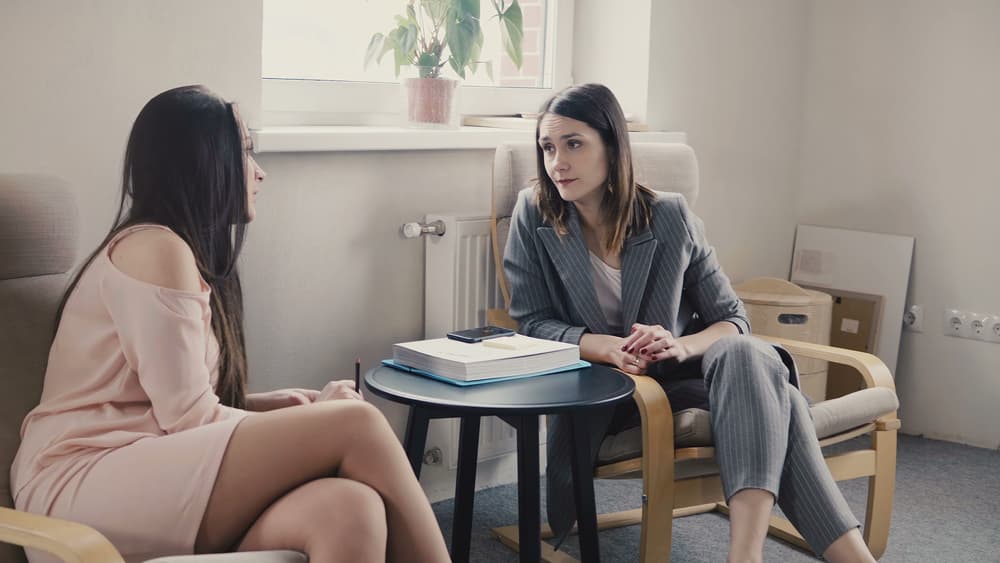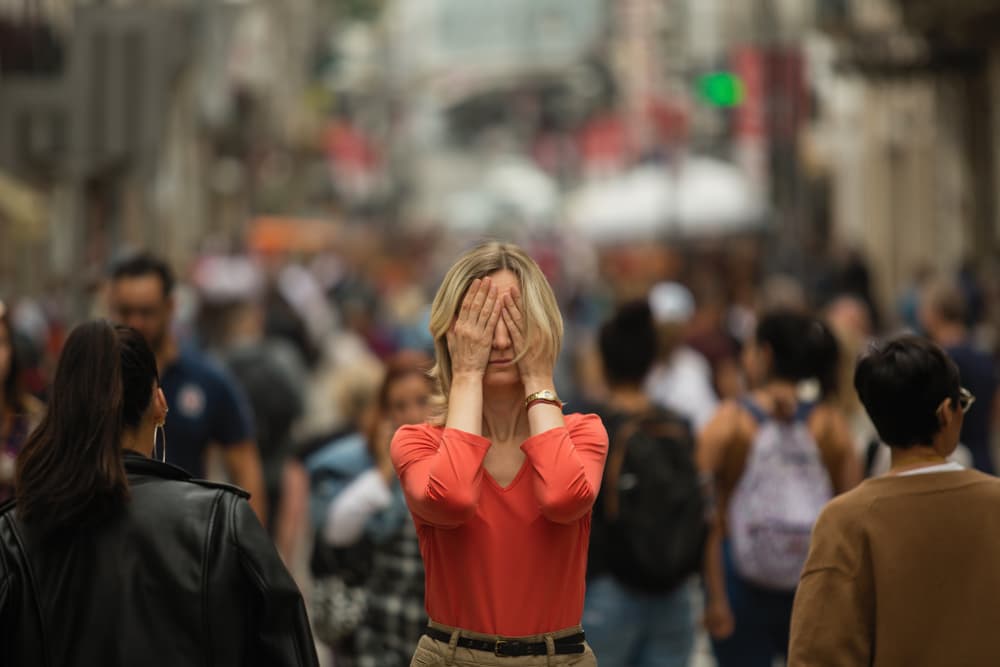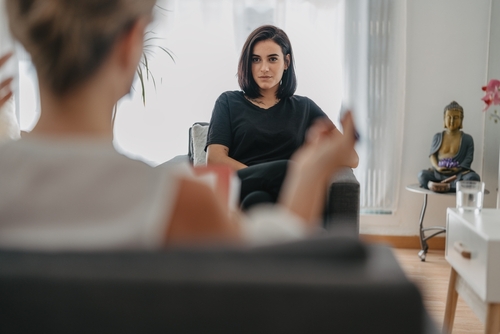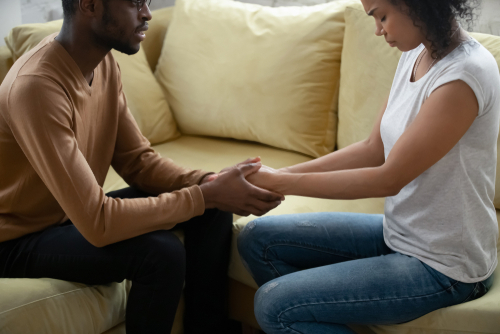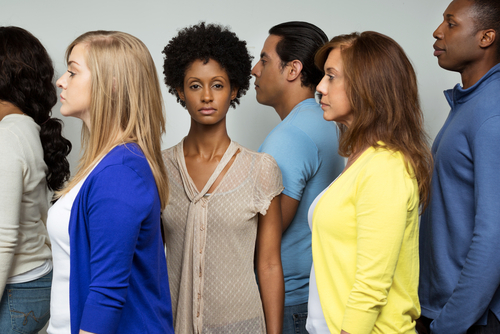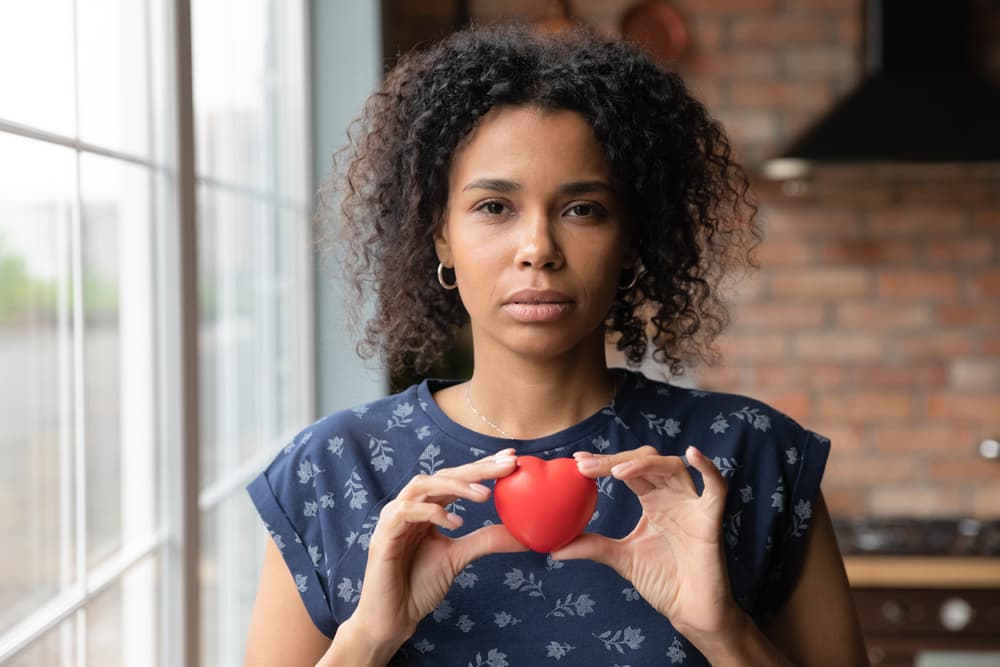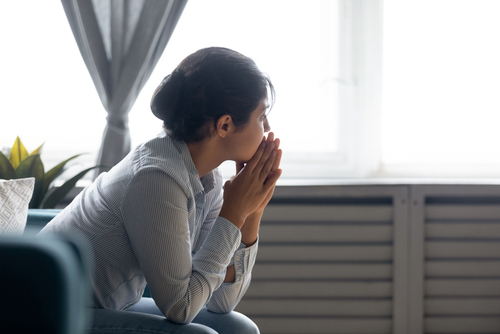Sharing our genuine feelings, thoughts, and truths about ourselves can be immensely rewarding by allowing us to form deeper connections with others. Learning how to be vulnerable can also liberate us from the restraints of self-doubt, fear, and insecurity and help us live our lives fearlessly, open to new experiences and opportunities.
However, being vulnerable doesn’t mean sharing every single detail with just anybody. When it comes to interpersonal relationships, establishing healthy boundaries and respecting them is necessary and beneficial for both sides. Boundaries are also crucial for expressing vulnerability. Sharing does help us build profound connections and empathy with other people, however we also need to respect their boundaries and preferences.
Embracing your vulnerability and being able to openly talk about yourself, your life, and even deeply personal feelings or events is healthy. However, context is everything. Sharing deeply sensitive information in inappropriate situations or among people who are not ready to offer the corresponding level of intimacy or support might lead you to conclude that your expectations were not realistic. It can backfire on you if you are not considering your “audience.”

What Is The Difference Between Vulnerability And Oversharing?
Expectations are crucial when it comes to the difference between healthy, open conversation and oversharing. If you’re unsure whether something is honest vulnerability or oversharing, consider the motives and expectations behind it by answering some of these questions:
- Why are you sharing this?
- What kind of outcome are you expecting or hoping for?
- What are you feeling while you’re sharing with others?
- What are your intentions, and do they reflect your life values?
- Would a lack of response or a particular type of response hurt your feelings?
- Do you feel that you’re connecting with the other person by sharing?
- Are you expressing your true needs?
- Do you already have a trusting relationship with the person you’re sharing with? Does the conversation topic seem appropriate for this level of trust?
- What are your expectations from the conversation? Are you taking the other person’s feelings and needs into account? Do you know and respect their boundaries?
Being vulnerable and using vulnerability are two quite different things. If the motivation for sharing is confusing or unclear, or if it seems that there are ulterior motives for someone’s apparent vulnerability, it can feel inauthentic or even manipulative to other people. Oversharing can end up being the complete opposite of genuine vulnerability and cause distrust, disconnection, and disengagement.
Instead of bringing people together, oversharing can do the complete opposite. It can feel uncomfortable for both sides. The person who overshares becomes exposed by revealing deeply personal experiences, information, or feelings with someone who isn’t capable of responding to their expectations.
Without the validation, understanding, and support they were looking for, they could end up feeling even more lonely and disconnected than before. In this case, their need for intimacy, deep connection, and belonging are not being met.
The person on the receiving end of oversharing is left baffled by the motivation and expectations of the person pouring out inappropriately intimate details about themselves. It’s hard to empathize with people when you’re suspicious about their motives or their behavior simply doesn’t correspond with the type of relationship you have.
What Are Some Signs Of Vulnerability?
People who overshare don’t usually get the reaction or response they were looking for. This can make them feel frustrated, hurt, annoyed, or even angry. Why does this happen? Why do some people feel entitled to a certain type of reaction and get aggressive if they don’t receive it?
The question to consider in this type of situation is how to be vulnerable without being needy. One of the things to keep in mind is that paying attention to and respecting other people’s boundaries makes all the difference. We don’t have the same comfort levels, so even though something may feel appropriate to you, it might not be to the other person.
People who overshare don’t just cross the line with others. By not establishing appropriate boundaries, they also fail to protect themselves and they forget about the essential benefit of vulnerability – empathy. By oversharing, they fail to empathize with others and consider the impact of their oversharing. This type of behavior pattern is not beneficial for either side.
Most people who tend to overshare may not even understand that they’re doing it or why. They might not have any bad or self-serving intentions; they could subconsciously be trying to make up for what they were missing as children and are still missing as adults who don’t healthily address their vulnerabilities. Just because we’ve grown up doesn’t mean that our brains and emotions have learned to overcome strong imprints of our unresolved childhood experiences and feelings.
Some of the most common signs of overly strong vulnerability include:
- Spending a lot of time imagining or expecting adverse outcomes in everyday life situations.
- Increased overall anxiety and avoidance behaviors.
- Constant feelings of stress and tension in relationships with others.
- Being worried about physical symptoms or illness.
- Avoiding any public exposure due to immense fear of being humiliated.
- Preparing for the worst-case scenario.
How Do You Know If You’re Being Overly Vulnerable?
Being overly vulnerable is usually described as being easily hurt. Since we’re all vulnerable and get hurt by various life circumstances, disappointments, or other people’s words and actions, it can be challenging to determine where to draw the line. None of us are perfectly equal in anything, and that includes vulnerability. So, what does ‘overly’ mean in this context? How can you tell that you’re more sensitive than others?
Some of these behaviors may point to increased vulnerability:
- Feeling intense fear that someone might discover your true feelings.
- Being afraid of the possibility that you’ll be rejected or abandoned if you show your true self.
- Not being able to share any personal information.
- Obsessing over your mistakes, not being able to forgive yourself and move past them.
- Feeling intense shame, fear, or grief.
- Not having healthy boundaries.
- Having unrealistic expectations.
- Closing off or isolating yourself from others makes you feel protected.
- Having negative thoughts about yourself and your capabilities.
- Avoiding certain everyday activities and social events.
- Frequently expecting negative outcomes.
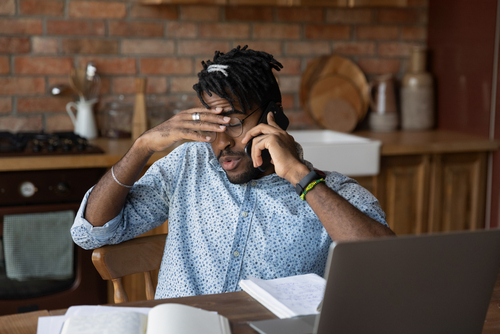
Learn How To Be Vulnerable Without Being Needy And Open Yourself Up To New Possibilities With PIVOT
Understanding vulnerability and addressing the feelings and fears that keep you disconnected from others are only the initial steps toward accepting and loving yourself for who you genuinely are. This challenging task requires courage. it’s a struggle with feelings of not being good enough and fears of failure. Scary as it is, this is not a journey you have to go through alone. Experienced PIVOT coaches and relationship advocates can guide you along the way to help you embrace the uncertainty and allow yourself to take chances.
When you take risks and invest yourself without guarantees, you’re opening yourself up to new opportunities and the possibility of change. You can achieve self-authenticity by seeing yourself in a new light, and by changing your behavior, you also change how others see you and interact with you. In the small group setting of our Glass House workshops, we learn to be kind to ourselves and others and enrich connections and relationships with our authentic selves and our loved ones.
